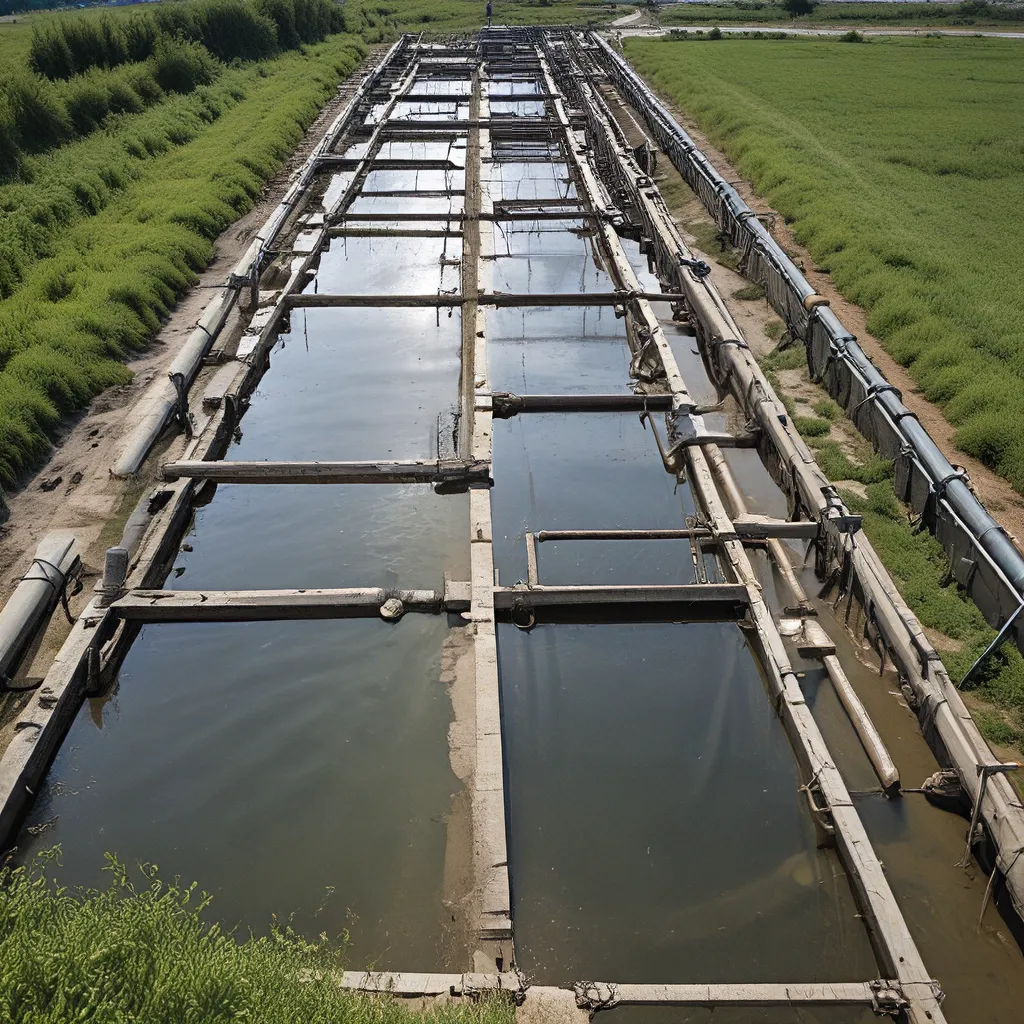
As someone who’s always been fascinated by the intersection of technology and sustainability, I’ve been diving deep into the fascinating world of wastewater treatment lately. And let me tell you, the more I learn, the more I’m convinced that this little-known field is the key to unlocking a whole new era of water-energy-food security.
The Wastewater Conundrum
Let’s start with the basics – wastewater treatment is the process of cleaning and purifying water that’s been used for various purposes, whether it’s in our homes, industries, or agriculture. This might sound like a pretty straightforward task, but the reality is far more complex.
You see, the amount of wastewater we’re producing globally is staggering – we’re talking hundreds of billions of cubic meters every single year. And the problem is only getting worse as our population grows and our demand for water skyrockets. The tricky part is that this wastewater is often laden with all kinds of nasty stuff – from chemicals and heavy metals to pathogens and nutrients.
If we just let this wastewater flow back into our natural water sources, it can have devastating consequences for our ecosystems, our drinking water, and even our food supply. That’s why wastewater treatment is so crucial – it’s the only way to ensure that we can safely reuse and recycle this precious resource.
The Water-Energy-Food Nexus
But here’s where it gets really fascinating – wastewater treatment isn’t just about cleaning up our water, it’s also inextricably linked to our energy and food systems. See, the process of treating wastewater actually requires a significant amount of energy, which is often generated from non-renewable sources like fossil fuels. This, in turn, contributes to our overall carbon footprint and greenhouse gas emissions.
On the flip side, properly treated wastewater can actually be a valuable resource for renewable energy production. How, you ask? Well, the organic matter in wastewater can be broken down through anaerobic digestion, which produces biogas – a renewable fuel that can be used to generate electricity or heat.
And the benefits don’t stop there. The nutrients and minerals found in wastewater can also be recovered and used as fertilizers for agriculture. This not only helps to close the loop on our water-energy-food systems, but it also reduces our reliance on synthetic fertilizers, which can be energy-intensive to produce and have negative environmental impacts.
Innovating for a Sustainable Future
So, what does all this mean for the future of wastewater treatment? Well, it’s clear that we need to start rethinking the way we approach this critical issue. Instead of treating wastewater as a waste product, we need to start seeing it as a valuable resource that can be harnessed to improve our overall sustainability.
This is where innovation comes into play. Companies like Alpha Wastewater are leading the charge in developing cutting-edge technologies and processes that can help us maximize the recovery and reuse of our wastewater resources. From advanced membrane filtration to microbial fuel cells, the possibilities are truly endless.
And it’s not just about the technology – it’s also about changing our mindsets and policies. We need to encourage and incentivize the adoption of these sustainable wastewater treatment practices, and educate the public on the importance of this issue.
A Vision for the Future
Imagine a world where wastewater is no longer seen as a problem, but rather as a solution to our most pressing environmental and social challenges. A world where water, energy, and food are inextricably linked in a closed-loop system that maximizes efficiency and minimizes waste.
It’s a vision that may seem a bit lofty at first, but I firmly believe that it’s within our grasp. With the right combination of innovation, collaboration, and political will, we can transform the way we think about and manage our wastewater resources.
And who knows, maybe one day we’ll look back and marvel at how we ever managed to live in a world where wastewater was something to be discarded, rather than celebrated as the invaluable resource it truly is.